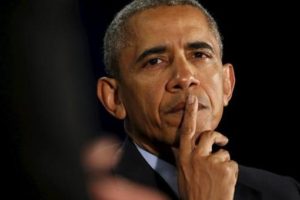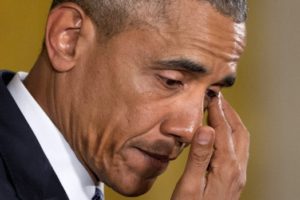Most pundits, elected officials and GOP loyalists will say that Bashar al-Assad had it coming; the 19th and authoritarian President of Syria has been in an armed conflict against his people for six years, killing over 400,000 people and displacing millions more.
So world leaders applauded President Donald Trump’s “decisive action” to unilaterally retaliate against the regime that used chemical warfare to gas innocent people (including children) in their own homeland.
Pictures of children dying from exposure to harmful gas apparently moved President Trump to unload 59 tomahawk missiles on the air base suspected to house the chemical weapons – however other media accounts of innocent children only moved Trump to ban fleeing Syrian refugees from entering the country.
America is the only true superpower remaining and foreign countries often look to us for leadership – undoubtedly the nation’s role in the international community diminished over the past eight years. But as a world leader, it’s critically important that we develop a concise and clear vision, with a combined set of actions that help international allies trust us.
Candidate Trump ran on a message of isolationism and “America First”, he championed a new conservative ideology centered on domestic priorities with reduced intervention in foreign conflicts.
President Trump continued those beliefs with a travel ban on refugees, voicing open support for the Russians, proposing a federal budget that significantly curtailed diplomatic efforts and just in the past several days informing world leaders the U.S. priority on Syria no longer focused on getting Assad out – all that changed within 48 hours.
Most reasonable people agree Trump was justified in moving swiftly to rebuke the heinous acts undertaken by al-Assad against his own people – but the U.S. airstrikes left the entire world, including the U.S. Congress trying to catch up with President Trump and what appears to be an impulsive yet monumental shift in foreign policy for the young administration.
Leaders apply finesse when going through an uncomfortable and rapidly changing situation; they recognize sudden lurches don’t build effective coalitions and well-crafted plans often fail with no external collaboration and consensus.
Pundits declared the military strike on Syria delivered a clear message to adversaries throughout the world – Russia, China, North Korea and even Iran now realize that America has a new boss in the White House. However it doesn’t appear the countries may have fully received the notice.
Afterwards, Russia deployed missile-armed warships to the area in the Mediterranean Sea where the Navy destroyers launched the cruise missile strike, and Syria has already returned to flying planes out of the very air base that was bombarded with $94MM of lethal hardware.
If the Syrians decide to once again blast the rebels as they have done before – will more American bombs fly over Syria? Will Trump need to deploy fighter jets to address expanding military issues in the country?
What about more ground troops? Are we prepared to engage the Russians in armed conflict?
Do we have a full strategy to address growing humanitarian needs, while leveraging diplomacy just as feverishly as we are utilizing military options?
Leadership requires decisive action, but only in the context of a greater strategy built on a foundation set with a clear vision, objectives and resources to guarantee successful outcomes.
President Trump, the newly minted Commander in Chief, should be careful not to leave more questions than answers with his new course of “decisive action”.




